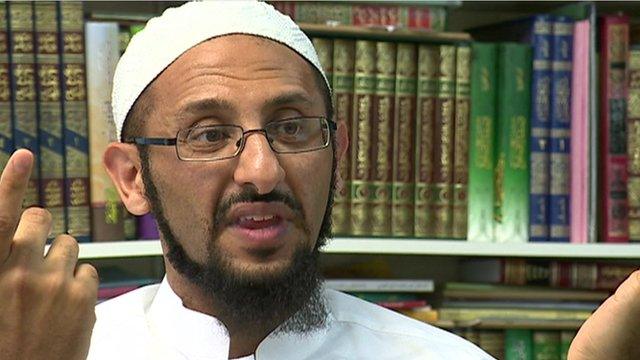UK Syria fighters pose long-term threat - Met officer
- Published
This footage purports to show Reyaad Khan (l) Nasser Muthana (c) from Wales
UK police will have to deal with the threat of British fighters returning from Syria for "many years", a top Scotland Yard officer has told the BBC.
Met Assistant Commissioner Cressida Dick said the conflict represented a "long-term" terrorist threat.
Her comments came after an apparent recruitment video for jihadists in Iraq and Syria featured several Britons.
The mother of one of the men in the online video made an emotional appeal for her son to return home to the UK.
Reyaad Khan, 20, from Cardiff, was identified as one of the men in the film, posted by internet accounts linked to militants from the Islamic State of Iraq and the Levant (Isis). The group has a presence in Syria and is engaged in fierce fighting with Iraqi government forces.
His mother told Sky News: "Reyaad, please come back home. I'm dying for you. You're my only son. Please come home Reyaad. Please send me son back home. He's my one and only son. I and my family need him back."
It comes after the father of aspiring medical student Nasser Muthana, also 20 and from Cardiff, spoke of his shock at seeing his son in the video.
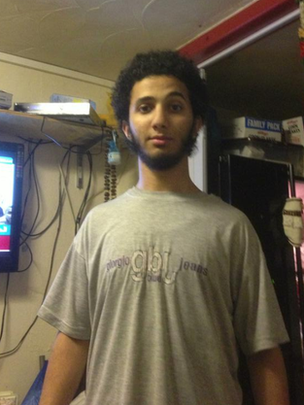
Aseel Muthana, 17, is also said to have travelled to Syria
He said his younger son, Aseel, 17, had also travelled to the country in February, several months after Nasser left.
'Disrupt plots'
Speaking to BBC Radio 4's The World This Weekend, Ms Dick - who is currently head of specialist operations including counter terrorism at the Met - warned Britain would face "the consequences" of the conflict in Syria for "many years to come".
"We are really alert to the fact that people may come back and they may have military training," she said.
"They may seek - although it's very difficult - to smuggle weaponry here and they may seek to cause violence or to encourage others to cause violence.
"So a huge part of our effort is about trying to work out who is coming back and intercept them at the port, and of course if we discover that there are plots being planned either from abroad, for example from Syria, or within the UK, we will do everything we can to disrupt that plot."
She said until recently police believed around 460 Britons had gone to fight in Syria, but said the figure could now be around 500.
"It's very difficult to know absolutely who has travelled or where they currently are," Ms Dick said. "I don't think anybody will ever have an absolutely definitive number."
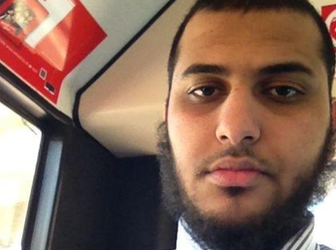
Nasser Muthana's family said they were "heartbroken"
Former MI6 director of global counter-terrorism Richard Barrett told Sky News's Murnaghan programme that as many as 300 radicalised young men had already returned to the UK.
Mr Barrett said it was an "absolute nightmare" for security agencies because they do not have the resources to track all of them.
Some are known "but others are probably completely unknown and maybe even their return is unknown and will only come to light later", he said.
More than 50 people have been arrested in the UK since 2013 for alleged Syria-related offences.
It comes as cabinet minister Iain Duncan Smith said the UK could provide logistical support for the US should it launch strikes against insurgents in Iraq.
"We have to do what we can to support the Americans," he told BBC Radio 5 Live's Pienaar's Politics.
Asked if British bases could be used, the work and pensions secretary said an "awful lot of Iraq" was not being run by Isis.
Ex-defence secretary Liam Fox: "It's a problem that's going to be with us for a long time"
But he added: "We will do what we can to support what the Americans want to do in terms of this."
Earlier, former defence secretary Liam Fox said it was "utterly wrong" to think there would be no backlash if the UK did not get involved in the conflict.
"The jihadists don't hate us because of what we do, they hate us because of who we are," he said.
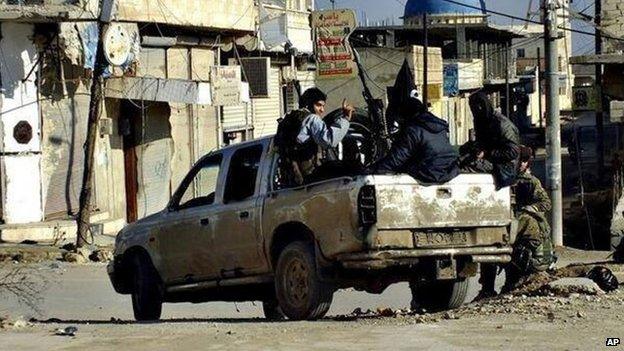
Islamist group Isis has a presence in Syria and is engaged in fierce fighting in Iraq
Mr Fox said the question had to be asked whether the security services had adequate resources for an increased threat.
He said there should be more surveillance, more manpower and more money, if required.
"At heart it's an ideological battle. We have to realise we have to win the ideological battle as well," he added.

Islamic State of Iraq and the Levant (Isis)
In 60 seconds: What does Islamic State want?
Isis grew out of an al-Qaeda-linked organisation in Iraq
Estimated 10,000 fighters in Iraq and Syria
Joined in its offensives by other Sunni militant groups, including Saddam-era officers and soldiers, and disaffected Sunni tribal fighters
Exploits standoff between Iraqi government and the minority Sunni Arab community, which complains that Shia Prime Minister Nouri Maliki is monopolising power
Led by Abu Bakr al-Baghdadi, an obscure figure regarded as a battlefield commander and tactician

'Potentially vulnerable'
Alyas Karmani, an imam and independent city councillor in Bradford, said the government should take some responsibility for the issue.
He said: "We are not reaching this group of young people who are potentially vulnerable to this radicalisation. And one of the reasons is because a lot of agencies that were providing that counter messaging about two or three years ago had their funding cut by the government."
South Wales Police said they were "increasingly concerned" about the number of young people travelling to Syria, but the issue was not unique to Cardiff or Wales.
"The advice is to avoid all travel to Syria - anyone who does travel is putting themselves in considerable danger," they said, warning those who engaged in terror-related activities would be prosecuted.
- Published23 June 2014
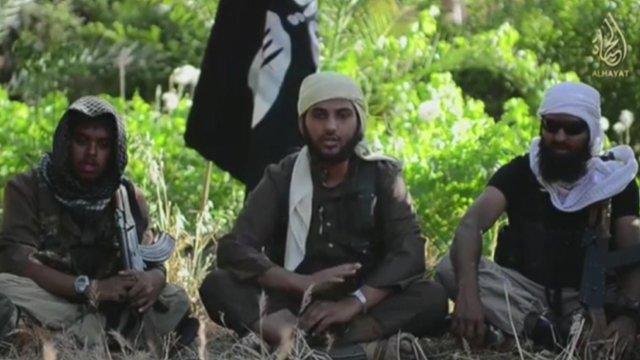
- Published22 June 2014
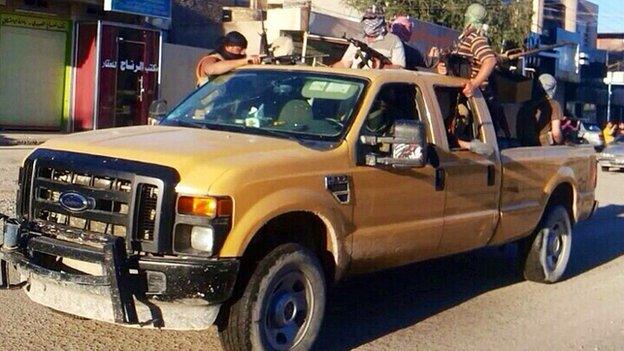
- Published21 June 2014
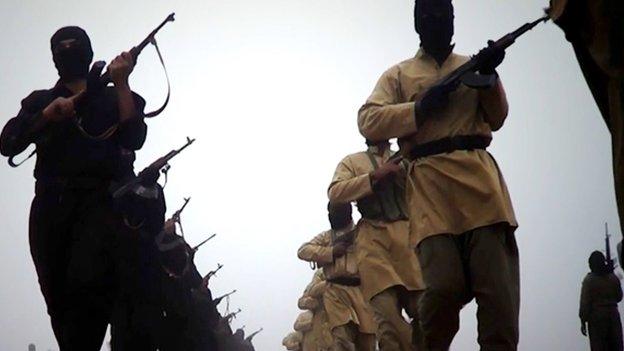
- Published21 June 2014

- Published20 June 2014

- Published2 August 2014
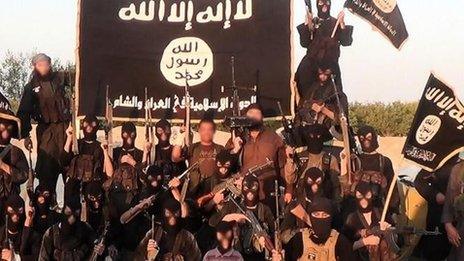
- Published24 April 2014
- Published24 April 2014
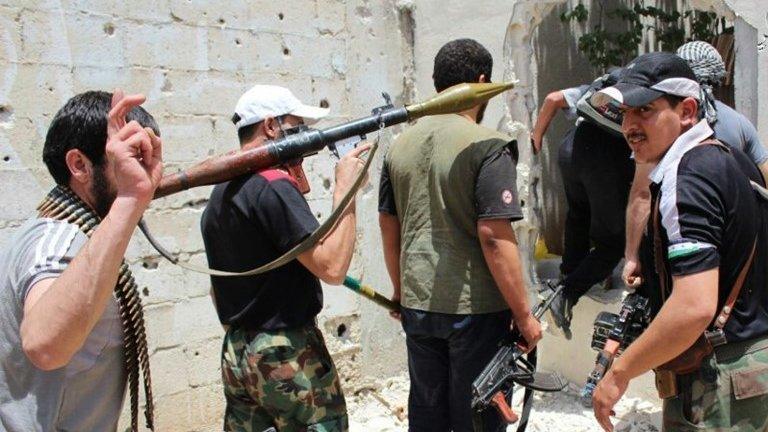
- Published24 December 2013
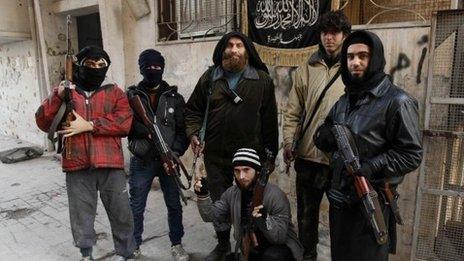
- Published24 April 2013
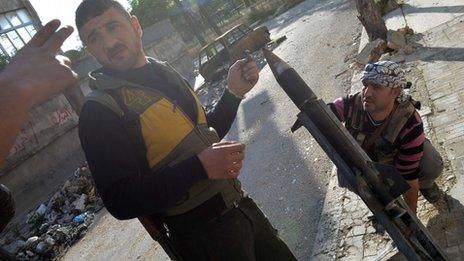
- Published24 April 2013
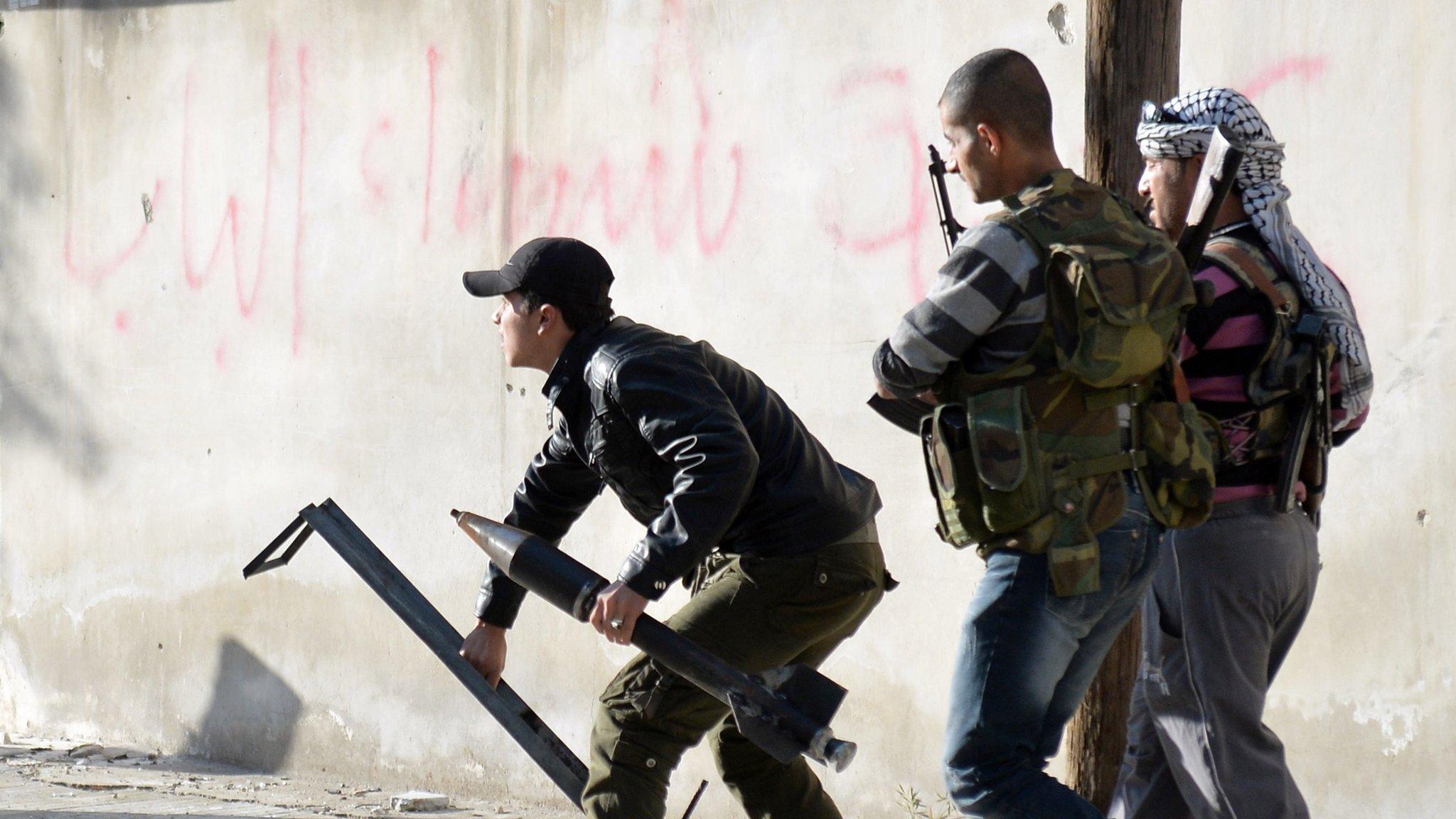
- Published16 August 2012
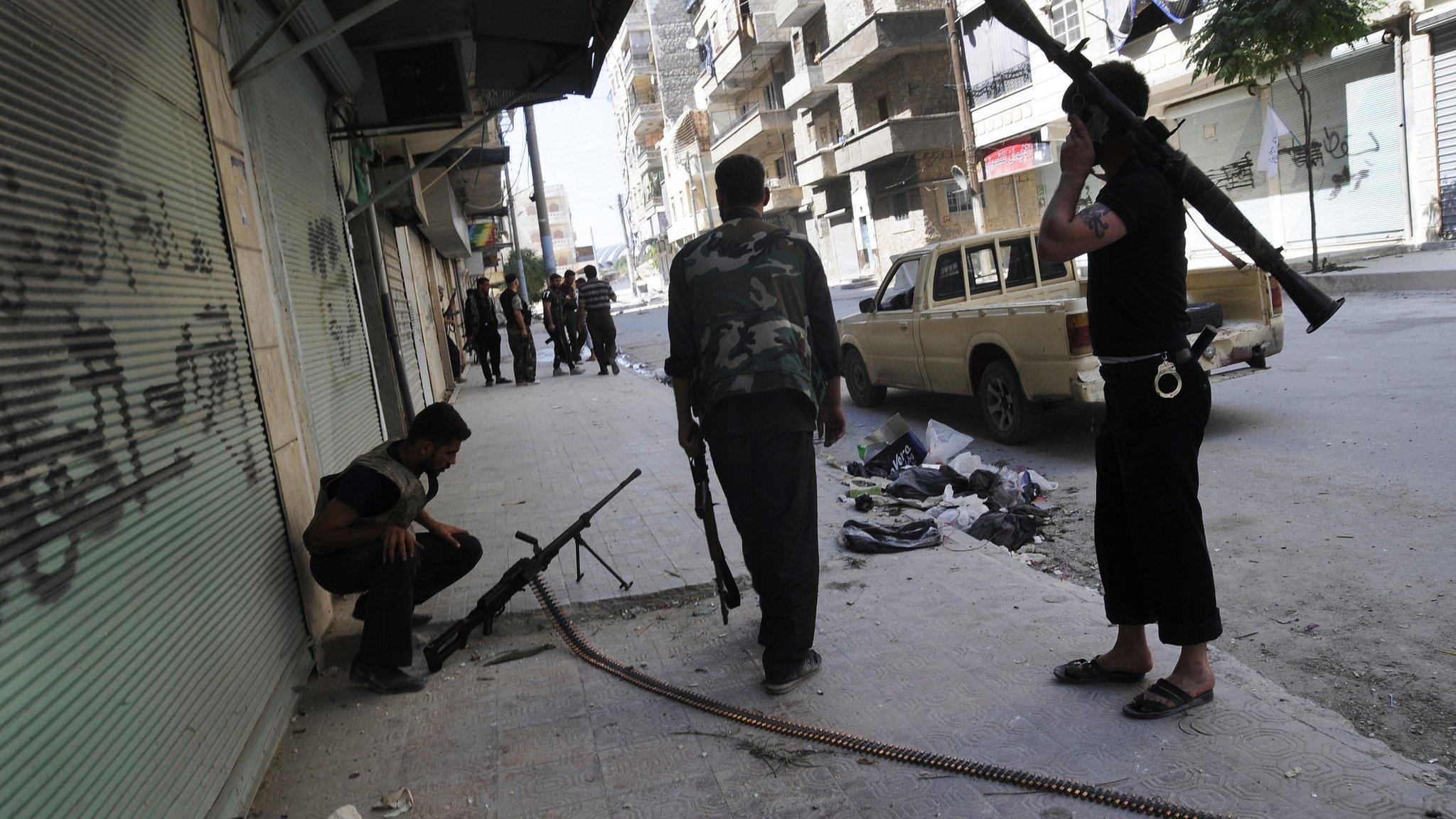
- Published22 June 2014
